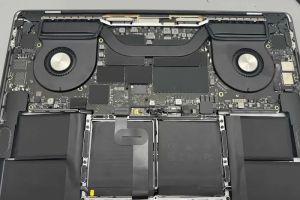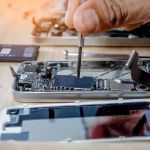- #why-is-my-computer-making-loud-fan-noises-causes-and-fixes
- #common-causes-of-loud-computer-fan-noises-overheating-and-dust-buildup
- #how-to-fix-loud-fan-noises-cleaning-and-maintenance-tips
- #software-issues-and-possible-solutions
- #when-to-seek-professional-help—expert-repair-guidance
- #real-life-cases—users-and-their-fan-noise-experiences
- #prevention-tips-maintaining-your-computer-for-long-term-performance
Why Is My Computer Making Loud Fan Noises? – Causes and Fixes
If your computer is making loud fan noises, it’s not just an annoying sound—it can be a sign that something is wrong. Over time, fans in both desktops and laptops can produce more noise, often because of specific issues that need addressing. In this guide, we’ll explore the common causes of loud fan noises and provide practical solutions to get your system back to quiet operation.

Action Computers Inc. -- Denver Location
2890 S Colorado Blvd F, Denver, CO 80222, USA
1. Why do computer fans make noise?
Fans are designed to cool down your computer’s components, especially the CPU and GPU, to prevent overheating. When your computer’s fan is louder than usual, it’s often a sign that it’s working harder than normal to cool the system. Understanding why this happens can help you find the right fix.

Fix It Computer Repair
2638 Geranium Ln, Fort Collins, CO 80525, USA
Common Causes of Loud Computer Fan Noises – Overheating and Dust Buildup
2. Overheating: The Number One Culprit
Overheating is the most common reason for a noisy fan. When the internal temperature of your computer rises, the fan speeds up to try and cool things down. If your computer is under heavy load (such as when gaming, editing videos, or running multiple applications), the fan will spin faster and create more noise. Over time, thermal paste can also degrade, causing components to overheat.
3. Dust and Debris
Dust and debris inside your computer can cause the fan blades to become unbalanced, which leads to excessive noise. Dust can accumulate on the fan blades, in the vents, and around the heat sink, preventing proper airflow and forcing the fan to work harder. If left unaddressed, it can also lead to permanent damage to the fan.
4. Hardware Failure
Sometimes, the issue might not be with the fan’s workload, but with the fan itself. A faulty fan, whether due to a damaged motor or worn-out bearings, can also create loud noises. If the fan is making a grinding or clicking noise, it could be time for a replacement.
How to Fix Loud Fan Noises – Cleaning and Maintenance Tips
5. Cleaning the Fans and Vents
The most straightforward solution is to clean your computer’s fans and vents. First, power down your device and unplug it. Use compressed air to blow out the dust from the vents and fan. Hold the fan blades in place to prevent them from spinning too fast, which could cause damage. Be sure to clean both the intake and exhaust vents for optimal airflow.
6. Replacing the Thermal Paste
If your system continues to overheat even after cleaning, it might be time to replace the thermal paste between the CPU and the heat sink. Over time, thermal paste can dry out and lose its effectiveness. Replacing it can restore the thermal management system and reduce fan noise.
7. Checking for Software Issues
In some cases, software issues can cause your computer to work harder than necessary, leading to louder fan noise. Ensure that your system isn’t running unnecessary background processes or updates that could be consuming resources. Task Manager (for Windows) or Activity Monitor (for macOS) can help you identify and close resource-hogging applications.
Software Issues and Possible Solutions
8. Updating Drivers and BIOS
Sometimes, outdated drivers or BIOS settings can cause your fan to run at higher speeds. Ensure that your system’s drivers, particularly those for the GPU and CPU, are up to date. BIOS updates may also include performance improvements that help control fan speeds.
9. Enabling Fan Control Software
If you have a desktop PC, you can install fan control software that allows you to manually adjust the fan speed. Lowering the fan speed can reduce the noise while still maintaining safe operating temperatures, especially when your computer is idling.
When to Seek Professional Help – Expert Repair Guidance
10. Knowing When to Get Help
If you’ve tried cleaning your system, updating drivers, and adjusting settings but still experience loud fan noises, it may be time to seek professional help. A computer repair technician can inspect the internal components, diagnose the cause of the noise, and replace any faulty hardware.
11. Why Choose Computer Repair
At Computer Repair, we specialize in diagnosing and resolving hardware and software issues, including noisy fans. Whether it’s dust buildup, overheating problems, or hardware failure, our experts can provide the best solution to restore your computer’s quiet operation. Don’t let a noisy fan distract you from your work or play—contact us for fast and reliable service.
Real-Life Cases – Users and Their Fan Noise Experiences
12. Case Study: The Gamer’s Dilemma
A dedicated gamer experienced loud fan noise when running demanding games. After cleaning the vents and updating drivers, the issue persisted. Our team diagnosed that the thermal paste had degraded, leading to overheating during intense gameplay. Replacing the thermal paste solved the problem, and the fan noise was greatly reduced.
13. Case Study: The Office Worker’s Fix
An office worker noticed that their laptop fan was increasingly noisy during regular use. After performing a deep clean and software check, the fan noise persisted. A professional repair revealed a worn-out fan motor, and replacing it restored peace to their workspace.
Prevention Tips – Maintaining Your Computer for Long-Term Performance
14. Regular Cleaning and Maintenance
One of the best ways to prevent fan noise is to keep your computer clean. Regularly blow out dust from your system, and if you’re comfortable with it, open up your desktop to clean the interior. For laptops, invest in cooling pads to help manage temperature.
15. Proper Ventilation
Ensure your computer is placed in a well-ventilated area. Avoid putting it on soft surfaces like beds or couches, which can block airflow and cause overheating. Elevating your laptop or desktop slightly can help air circulate better.
16. Monitor Temperature and Usage
Using software to monitor your computer’s temperature can alert you when things are getting too hot. By keeping an eye on usage and performance, you can take steps to prevent overheating before it leads to loud fan noises.































